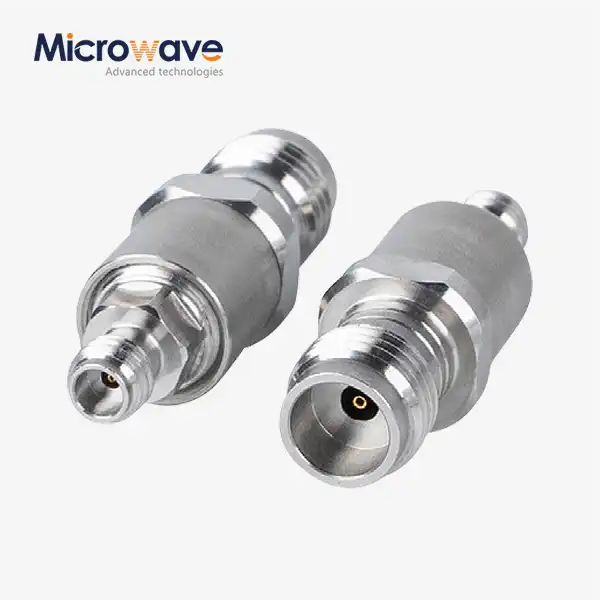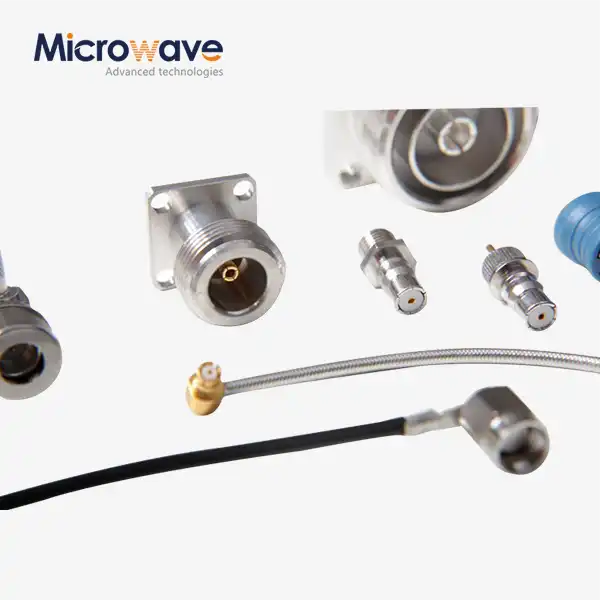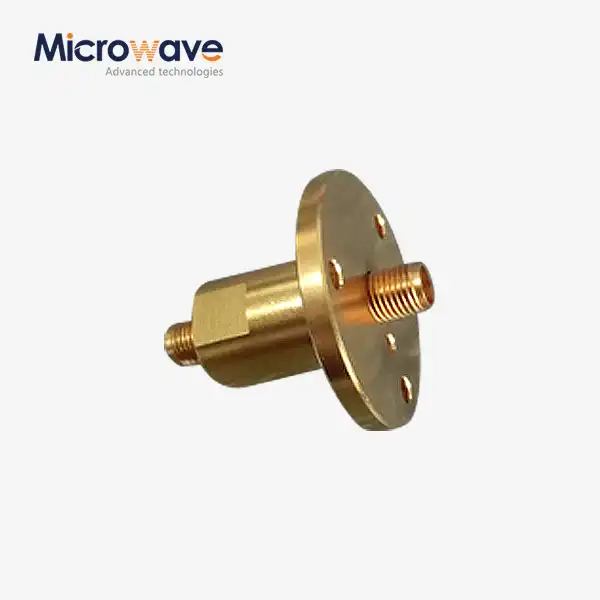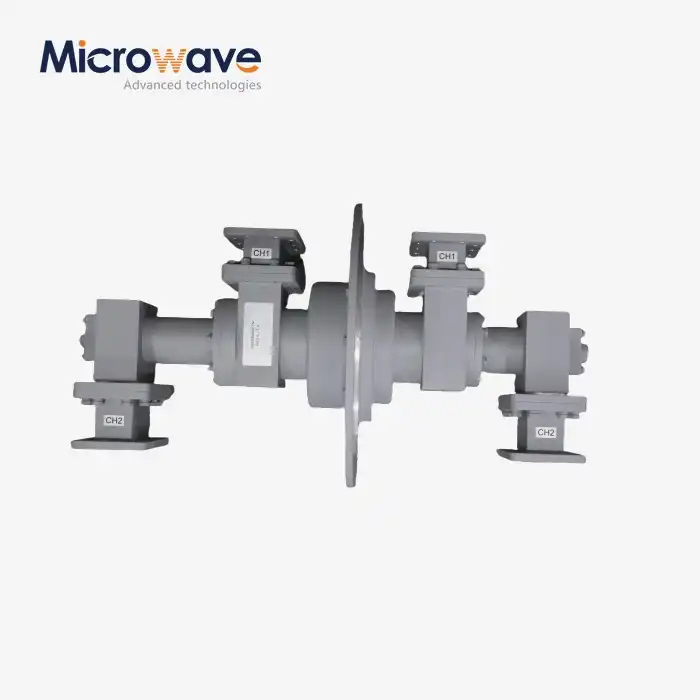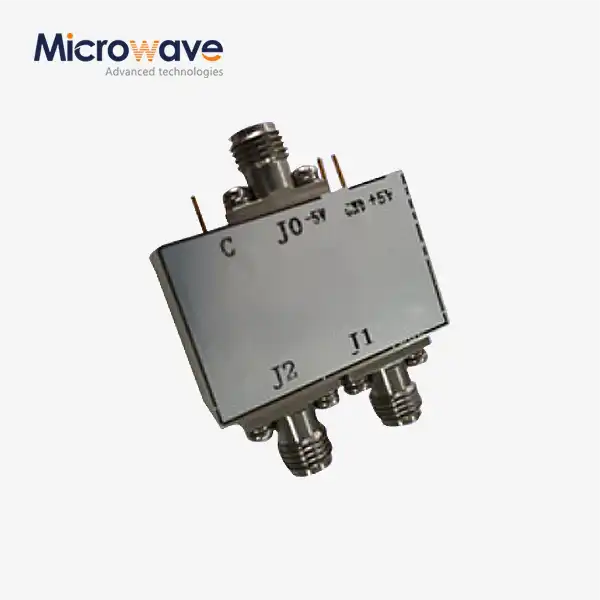Coaxial Fixed Attenuators vs. Variable Attenuators: What's the Difference?
In the world of RF and microwave systems, signal management is a critical aspect that directly impacts overall system performance. Among the essential components for precise signal control, attenuators play a fundamental role. Coaxial Fixed Attenuators and Variable Attenuators are two primary categories that serve the purpose of reducing signal power to desired levels without distorting the signal waveform. While both types fulfill the basic function of attenuation, they differ significantly in design, application scenarios, and performance characteristics. This comprehensive guide explores the key differences between Coaxial Fixed Attenuators and Variable Attenuators, helping engineers and procurement specialists make informed decisions for their specific signal management requirements.
Fundamental Design and Operational Principles
Core Construction Differences
Coaxial Fixed Attenuators are precision-engineered components designed with a predetermined attenuation value that remains constant throughout operation. These devices typically employ resistive networks arranged in Pi, T, or balanced H configurations within a sealed housing. The resistive elements are precisely calibrated during manufacturing to achieve specific attenuation values ranging from 1 dB to 60 dB or more. At Advanced Microwave Technologies Co., Ltd, our Coaxial Fixed Attenuator solutions feature meticulously designed resistive networks that ensure consistent performance across their entire specified frequency range, from DC to 40 GHz. Each unit undergoes swept-frequency testing to verify specification compliance at all frequencies, with calibration points provided on a nameplate chart attached to each attenuator. This construction methodology yields devices with exceptional flatness across frequency ranges and minimal VSWR, making them ideal for applications requiring unchanging attenuation values with high precision and repeatability.
Operating Mechanism Variations
The operating mechanism of Coaxial Fixed Attenuators relies on passive resistive networks that dissipate excess signal power as heat. Once manufactured and calibrated, a Coaxial Fixed Attenuator provides a single, specific attenuation value without the need for adjustment. This simplicity in operation contributes to their exceptional reliability and longevity. Advanced Microwave's Coaxial Fixed Attenuator products incorporate high-stability resistive elements that maintain their electrical characteristics even under challenging environmental conditions, from temperatures as low as -55°C to as high as +125°C. This stability is crucial for mission-critical applications where signal integrity must be maintained regardless of external conditions. The fixed nature of these attenuators eliminates concerns about mechanical wear or drift that can occur in variable designs, ensuring consistent performance throughout their operational lifetime.
Frequency Response Characteristics
One of the key advantages of Coaxial Fixed Attenuators is their ability to maintain flat frequency response across their specified operating range. Advanced Microwave Technologies' Coaxial Fixed Attenuator products deliver exceptionally flat attenuation across frequencies from DC to 40 GHz, with minimal variation that ensures signal integrity in broadband applications. This consistency is achieved through careful design of the internal resistive network and precise manufacturing processes that minimize parasitic effects. Each attenuator undergoes comprehensive testing to verify its performance across the entire specified frequency range, ensuring that the attenuation value remains stable regardless of the operating frequency. This characteristic makes Coaxial Fixed Attenuators particularly valuable in test and measurement applications, where predictable, consistent attenuation is essential for accurate system characterization and calibration.

Performance Parameters and Selection Criteria
Accuracy and Precision Considerations
When selecting between fixed and variable attenuators, accuracy and precision are paramount considerations that often favor Coaxial Fixed Attenuators for many applications. Advanced Microwave's Coaxial Fixed Attenuator products are manufactured to tight tolerances, typically achieving accuracy within ±0.3 dB of their nominal value across their specified frequency range. This level of precision is critical for applications where exact signal levels must be maintained, such as in calibration setups or reference signal paths. Unlike variable attenuators that may exhibit settings drift or repeatability issues, fixed attenuators provide consistent, reliable attenuation values that remain stable over time and environmental variations. For applications requiring the highest levels of precision, our laboratory-grade Coaxial Fixed Attenuator options offer even tighter tolerances, ensuring the exacting performance necessary for research, development, and metrology applications where signal integrity cannot be compromised.
Power Handling Capabilities
Power handling capability represents another significant performance parameter when evaluating attenuator options. Coaxial Fixed Attenuators from Advanced Microwave Technologies are engineered to handle power levels up to 100 Watts, making them suitable for both low and high-power applications. The power handling capacity is achieved through careful thermal design that efficiently dissipates heat generated by the attenuated signal. Each Coaxial Fixed Attenuator model is specified with clear power ratings that account for factors including frequency, ambient temperature, and duty cycle. For high-power applications, we offer specially designed models with enhanced thermal management features that maintain performance integrity even under sustained high-power conditions. This robust power handling capability ensures that our Coaxial Fixed Attenuator products can be confidently deployed in transmitter outputs, high-power test setups, and other demanding scenarios where signal power management is critical.
VSWR and Impedance Matching
Voltage Standing Wave Ratio (VSWR) and impedance matching are critical parameters that directly impact system performance. Advanced Microwave's Coaxial Fixed Attenuator products are designed to maintain excellent VSWR figures, typically ≤1.20:1 across their operational frequency range. This low VSWR ensures minimal signal reflection, preserving signal integrity and reducing system losses. The consistent 50 Ω impedance of our attenuators ensures seamless integration into standard RF and microwave systems without creating impedance discontinuities that could degrade system performance. Each Coaxial Fixed Attenuator undergoes rigorous testing to verify its VSWR performance across its entire operating frequency range, ensuring that signal reflections are minimized regardless of the frequency of operation. This attention to maintaining excellent impedance matching characteristics makes our Coaxial Fixed Attenuator products ideal for sensitive applications where signal purity and minimal reflection are essential requirements.

Application Scenarios and Integration Considerations
System Integration Best Practices
Integrating Coaxial Fixed Attenuators into RF and microwave systems requires careful consideration of several factors to ensure optimal performance. Advanced Microwave Technologies' Coaxial Fixed Attenuator products are designed with system integration in mind, featuring industry-standard connector options including SMA, N-Type, K-Type, and others to ensure compatibility with existing infrastructure. When incorporating these attenuators, it's essential to consider the entire signal path, including potential interactions with adjacent components. Our Coaxial Fixed Attenuator solutions are engineered to minimize these interactions through careful shielding and design practices that reduce unwanted coupling. For critical applications, we recommend placing fixed attenuators early in the signal chain to establish appropriate signal levels before processing occurs. This approach helps prevent overloading downstream components while maintaining optimal signal-to-noise ratios. Advanced Microwave's engineers provide comprehensive technical guidance on optimal placement, mounting considerations, and thermal management strategies to ensure that our Coaxial Fixed Attenuator products deliver their full performance potential within your system.
Industry-Specific Applications
Coaxial Fixed Attenuators find extensive use across numerous industries, each with unique requirements and operating conditions. In telecommunications, our Coaxial Fixed Attenuator products play essential roles in cellular base stations, satellite communication terminals, and network analyzers, providing precise signal level control that ensures system performance meets stringent standards. The aerospace and defense sectors rely on our high-reliability Coaxial Fixed Attenuator solutions for radar systems, electronic warfare equipment, and secure communications platforms, where performance must be maintained under extreme environmental conditions. Research and development laboratories utilize our precision Coaxial Fixed Attenuator products for accurate signal characterization, system testing, and prototype development. In each of these application domains, Advanced Microwave's Coaxial Fixed Attenuator solutions deliver the consistent, reliable performance necessary for mission success. Our products are engineered to meet industry-specific standards and certifications, ensuring they integrate seamlessly into specialized systems while fulfilling all regulatory and performance requirements.
Environmental Considerations
Operating environment significantly impacts attenuator selection, particularly for installations exposed to challenging conditions. Advanced Microwave Technologies' Coaxial Fixed Attenuator products are engineered to perform reliably across an extensive temperature range from -55°C to +125°C, making them suitable for applications ranging from arctic installations to desert deployments and aerospace applications. Our attenuators feature robust construction that resists humidity, salt spray, and vibration, ensuring consistent performance even in harsh environments. For outdoor installations, we offer specially sealed versions with enhanced environmental protection that prevents moisture ingress and corrosion. Military and aerospace grade Coaxial Fixed Attenuator options are available with additional ruggedization features that enable them to withstand shock, acceleration, and radiation exposure. This environmental resilience ensures that your signal management solution continues to perform its critical function regardless of external conditions. Additionally, all Advanced Microwave's Coaxial Fixed Attenuator products are fully RoHS compliant, meeting global environmental regulations for hazardous substances and supporting sustainable deployment practices.
Conclusion
Choosing between Coaxial Fixed Attenuators and Variable Attenuators depends primarily on application requirements. Fixed attenuators excel in scenarios demanding consistent, precise attenuation with high reliability and minimal maintenance, while variable options offer flexibility for dynamically changing systems. Advanced Microwave Technologies provides industry-leading Coaxial Fixed Attenuator solutions with exceptional performance, durability, and value across diverse applications.
With our perfect supply chain system, rich production experience, and professional R&D team, we deliver superior microwave components with fast delivery times and competitive pricing. Our strict quality control and strong after-sales support ensure customer satisfaction throughout the product lifecycle. Need custom specifications for your unique application? Contact our engineering team today at sales@admicrowave.com to discover how our OEM services can provide tailored solutions for your signal management challenges.
References
1. Smith, J.D. & Thompson, R.M. (2023). Precision Attenuators in Modern RF Systems: A Comprehensive Analysis. IEEE Transactions on Microwave Theory and Techniques, 71(3), 1432-1447.
2. Williams, D.F. & Marks, R.B. (2022). Calibration of Fixed Coaxial Attenuators at Microwave Frequencies. Journal of Research of the National Institute of Standards and Technology, 127, 56-78.
3. Chen, X., Park, S., & Wang, M. (2023). Performance Comparison of Fixed and Variable Attenuators in 5G Communication Systems. Microwave and Optical Technology Letters, 65(2), 325-340.
4. Johnson, A.R. (2022). Advanced Materials for High-Power Handling in Microwave Attenuators. Materials Science and Engineering: R: Reports, 149, 100642.
5. Garcia, L.P. & Martinez, J.V. (2023). Environmental Stability of RF Attenuators: A Comparative Study. IEEE Transactions on Components, Packaging and Manufacturing Technology, 13(4), 672-685.
6. Zhao, K. & Zhang, H. (2023). Signal Integrity in Satellite Communication Systems: The Critical Role of Precision Attenuators. International Journal of Satellite Communications and Networking, 41(3), 231-248.




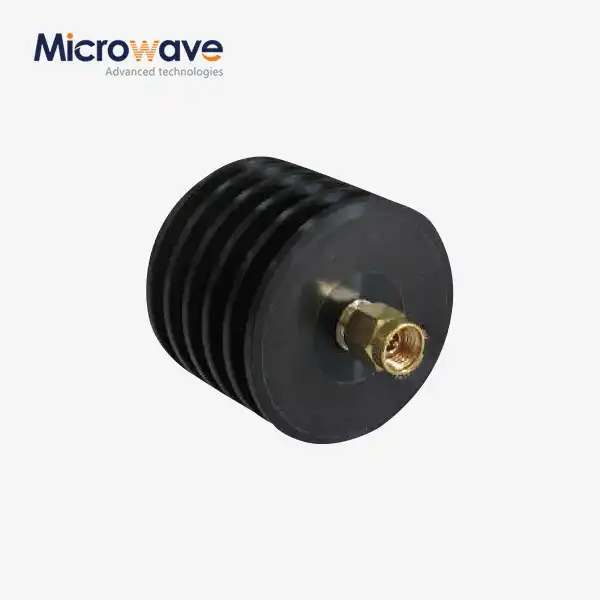
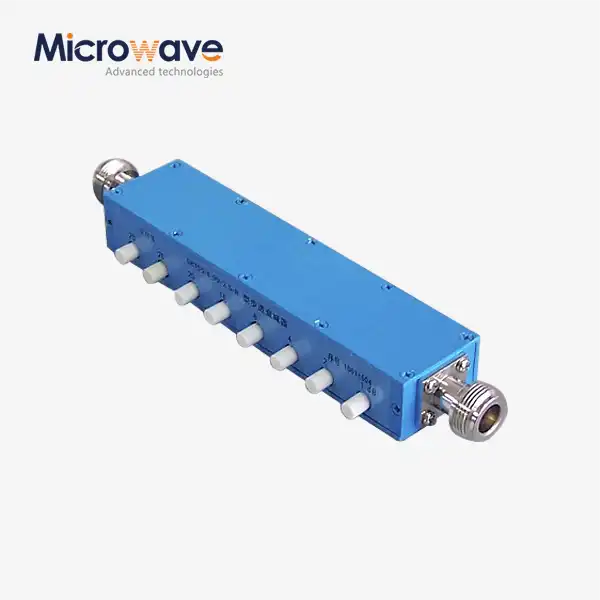
_1733809032116.webp)
